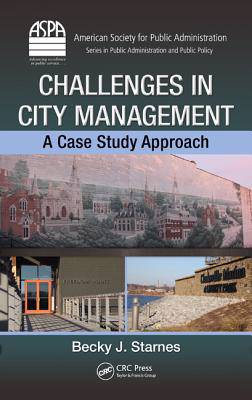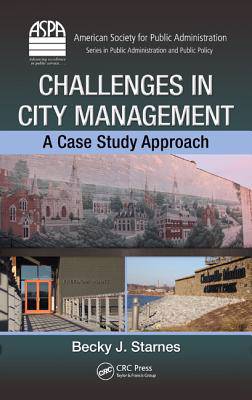
- Retrait gratuit dans votre magasin Club
- 7.000.000 titres dans notre catalogue
- Payer en toute sécurité
- Toujours un magasin près de chez vous
- Retrait gratuit dans votre magasin Club
- 7.000.0000 titres dans notre catalogue
- Payer en toute sécurité
- Toujours un magasin près de chez vous
Description
City management in developing countries is a quickly growing area in current public administration literature. However, little research material can be found regarding the management of cities. Demonstrating the issues in this field, Challenges in City Management: A Case Study Approach brings the sometimes dry theories and concepts of urban planning and management to life. The author uses case studies to demonstrate "who," "what," "why," and "how," dramatically increasing readers' ability to comprehend and apply the theories.
Incorporating urban management and organizational management theories with actual practice, the author presents case studies based on observations made during her extensive experience. She offers multiple examples of common contemporary city topics ranging from personnel, policy-making, housing, homelessness, transportation, and budgeting. Each study describes and analyzes a scenario, identifying the economic and political factors as well as the often conflicting players and interest groups.
The book provides enhanced understanding of the complex environment city administrators work in, helping readers develop improved decision-making and problem-solving skills through the study of real issues city administrators have experienced. The case study methodology used supplies information that is immediately applicable to real-world situations, making it a resource that city administrators can use to improve their public administration and governance skills.
Spécifications
Parties prenantes
- Auteur(s) :
- Editeur:
Contenu
- Nombre de pages :
- 200
- Langue:
- Anglais
- Collection :
Caractéristiques
- EAN:
- 9781439884362
- Date de parution :
- 22-05-13
- Format:
- Livre relié
- Format numérique:
- Genaaid
- Dimensions :
- 160 mm x 234 mm
- Poids :
- 430 g

Les avis
Nous publions uniquement les avis qui respectent les conditions requises. Consultez nos conditions pour les avis.






